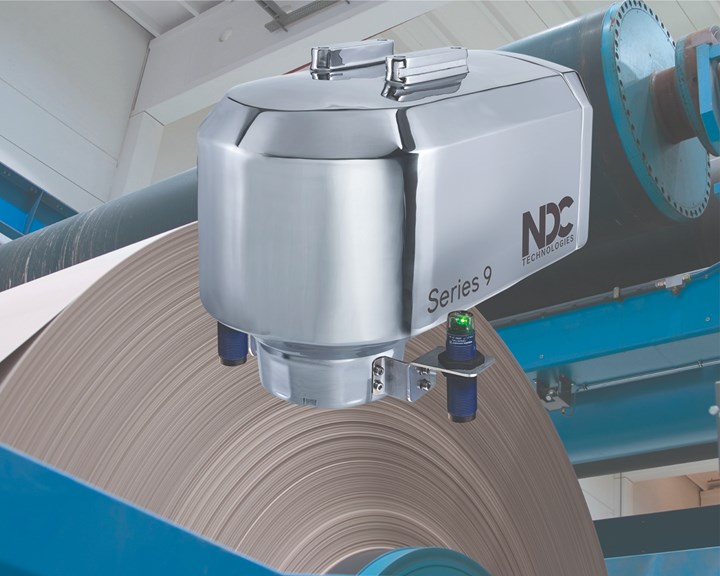Innovative Film Gauge is 'Ultra-Accurate'
Said to provide the best-in-class, best-in-value measurement system on the market today.
NDC Technologies has taken its Series 9 on-line gauging system one step further with the the Series 9 Converting gauge.
Billed by NDC as “the best-in-class, best-in-value measurement system on the market today,” the gauge is said to be equipped with a unique set of capabilities for unparalleled measurement performance across a wide range of converting applications.
 Photo: NDC Technologies
Photo: NDC TechnologiesMore specifically, the Series 9 gauge is said to provide:
- Greater Process Vision: When integrated with NDC’s high-performance single-beam scanners, such as the new SlimTrak II, and Pro.Net TDi web gauging controller, it provides process vision far beyond that of conventional in-process measurement systems. Users can effectively perform ultra-accurate measurements of moisture, coat weight, degree of cure and film/layer thickness across a wide range of converting applications such as extrusion, coating and lamination.
- Long-Term Stability: Delivers ultra-reliable operation with no need for recalibration, systematic monitoring or correction for drift.
- Advanced Diagnostics: Includes powerful features for preventative maintenance to ensure maximum uptime
- Lowest Cost of Ownership: Easy operation and maintenance enables manufacturers to realize immediate and long-term value over the lifetime of operation.
Related Content
-
Use Interactive Production Scheduling to Improve Your Plant's Efficiencies
When evaluating ERP solutions, consider the power of interactive production scheduling to effectively plan and allocate primary and secondary equipment, materials and resources on the overall production capacity of the business and conclude that this is a key area that cannot be overlooked.
-
How to Select the Right Cooling Stack for Sheet
First, remember there is no universal cooling-roll stack. And be sure to take into account the specific heat of the polymer you are processing.
-
Medical Tubing: Use Simulation to Troubleshoot, Optimize Processing & Dies
Extrusion simulations can be useful in anticipating issues and running “what-if” scenarios to size extruders and design dies for extrusion projects. It should be used at early stages of any project to avoid trial and error and remaking tooling.





